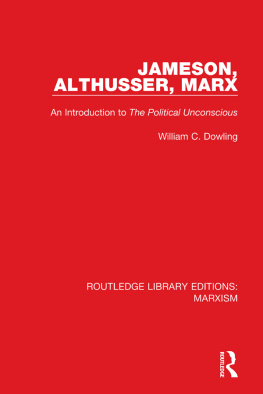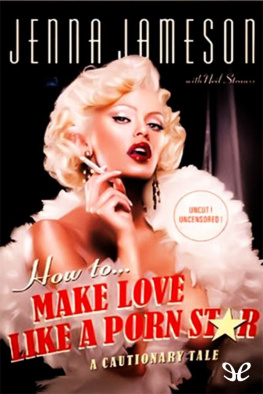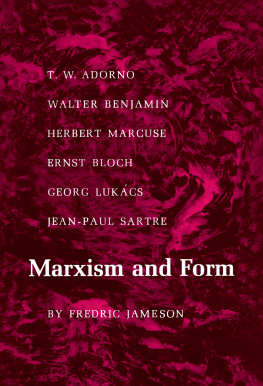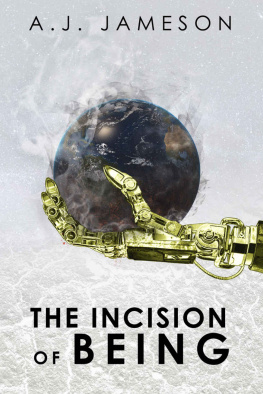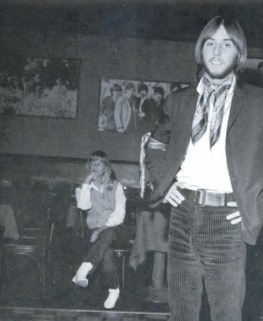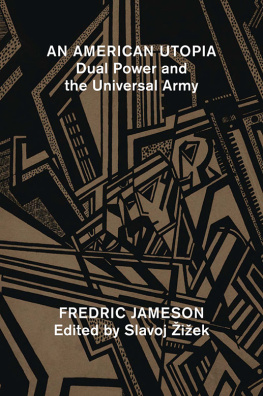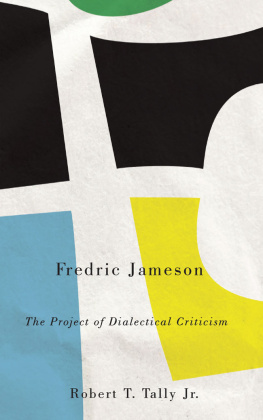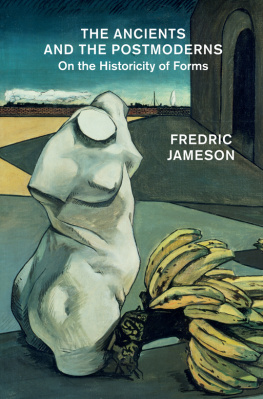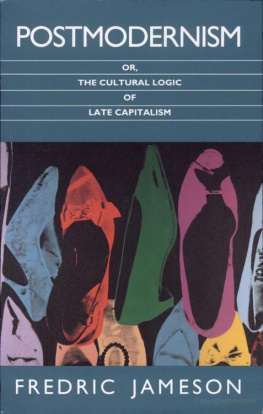Journey from the North Vol. II
Autobiography of Storm Jameson

For Guy
Contents
Part I
TURN AS YOU MAY
Part II
THE EATAGE OF THE FOG
Turn as you may, lap after lap, in front of the black
Eumenides who are bored and cannot forgive.
GEORGE SEFERIS
Chapter I
The deviate approach of a war many can see coming is a hand clapped over the eyes. Ridiculous to look back, over the waste months, to a time already irrelevant when some current of action might have set in and swept us past the teeth of the rock. And though this can still happen, we dont look forward, we have lost the sense that the future is our business.
In the early spring of that year I moved us to the house we were to share with my young sister, her husband and her two very young children. It was a big house, solid, and dignified in a pleasantly shabby way, like a plainly-bred Victorian dowager. It had lawns and a great many old trees and an orchard, and this, with the large kitchen garden, was what we counted on to see us through the war. My room on the first floor was vast, with windows looking down towards the high south wall of the garden; there were nectarines on this wall. Guys room downstairs was equally large, but darkened by the elms and a strong old yew-tree. The village itself was small and unspoiled, in the middle of open heath.
I have never been happier.
The autumn before we moved, in the middle of the Czech crisis, I began writing a novel that had been knocking on my skull to get out. It was about Europeportraits of Europe seen in this and that light, from this and that angle, as a painter might go on trying to get at the truth of a man or woman, looking for it both in himself and his model. I wrote it with consummate pleasure, without a moments boredom. For once I was too sure of the probity of what I was writing to feel either bored or impatient.
I know well that to be perfectly happy all I need is an unearned eight hundred a year, or its equivalent in our depreciated money, and the courage to live abroad and write a book every seven or ten years.
There were to be four portraits, long nouvelles or rcits. I wrote the last firstThe Children Must Fearabout Budapest, and finished it in November. But already, in October, I had begun writing another novel, completely different in kind, and just as determined to get itself written. This one, which I meant to call The Captains Wife, was the story, after her wilful marriage, of Sylvia Russell, one of Mary Herveys daughtersMary Hervey being the central figure in three novels about shipbuilding I wrote in my green twenties. It sprang from a deep nostalgia for a life I knew only through my mother, and through my childhood in a society of captains wives of the old sort, as much at home in small cargo boats as in their own houses. Sylvia Russell is not my mother. But I drew from that powerful ghost and from all I had absorbed, consciously and unconsciously, from her memories, the portrait of a captains wife who resembled her in looks and gestures. (When, in the underworld, Odysseus tried to take his dead mother in his arms, she slipped through his grasp.)
At the same time another of the stories of Europe to Let was nagging me. This was The Hour of Prague. I began it, and after writing ten and eleven hours a day for a fortnight dropped it to get on with The Captains Wife, which I finished in Februaryto my grief I had to find another tide for it in Englandand went back at once to The Hour of Prague.
In April and May I spent five weeks in Paris, alone. My mind has saved only one image of what must have been at least a near approach to complete happiness, that of the evening when Benjamin Crmieux took me to the rptition gnrale of Giraudouxs Ondine. At that time I still adored Giraudoux, and would have listened to Jouvets incomparably moving voice with equal pleasure had he been reciting a time-table. I was madly happyin spite of the ironical surprise I felt that, at this moment, when, Vienna lost, Prague lost, Paris was really in danger, we should be applauding fervently this piece of enchanting nonsense about a German knight. The work of a rather tired enchanter.
Would you like to speak to Giraudoux? Crmieux asked.
If I had had the courage I should have refused: I knew that I should be too timid to utter two consecutive words. We climbed a mean dusty staircase to an even meaner room, and I listened dumbly for ten minutes while Crmieux talked amiably and volubly to Giraudoux, who was grey-faced and smiling, and looked for all the world like a Foreign Office clerk.
Over supper in Webers, Crmieux described the scene there after Munich, men and women in evening dress, sweating violently with relief, excitement, and too much wine, waving their arms and parts of garments, and shouting, Merci, Daladier! Vive Daladier!
Too many Frenchmen are less afraid of the Nazis than of socialism, he said harshly, with a harsh grief.
Simply out of politeness, I answered, They have their counterparts in England, eminent respectable men and politicians who believe that Hitler is no threat to their interests and so need not be opposed.
This was true, but I had not said what I thought, which was that in any event we were sounder than the French, and more likely, at the last minute to stand. Or were we only less intelligent?
(After that night I did not see Crmieux again. When, some time in 1944 I was told he had died in Buchenwald I felt only a conventional regret, and for twenty years never gave him a thought. Then, on the 29th of March 1964, I was reading the fifteenth volume of Paul Lautauds Journal Littraire, and came on the entry of Wednesday the 19th of May 1943.
Paulhan ma reparl de Benjamin Crmieux. Averti par des amis quon allait larrter et se dpchant de filer et de se cacher. Il a t arrt, chez le petit bistro de (ie nai pas retenu) o il vivait cach, par deux agents de la Gestapo, revolver au poing. A ce moment, Paulhan a eu ce mot, avec une sorte dexpression douloureuse sur le visage: Ils vont le torturer. Il mexplique que Benjamin Crmieux, lieutenant dans larme franaise, sest occup de la formation dune sorte de groupe militaire arm Lautaud has no use for such senseless gestures, and says so. Paulhan answers that Crmieux is de ces gens qui nacceptent pas, qui ne se rsignent pas Strangely, this touches Lautaud, who had always liked Crmieux, although he did not like Jews. Quest le mieux, he reflects, He plus estimable, le plus noble mme, si on peut direet, en crivant ce mot : noble, le mot bte, je lavoue, me vient en mme tempsde ne pas se rsigner, de ne pas accepter, de protester, de continuer agir contre selon les moyens quon a, courant le risque qui peut en rsulter, ce qui tout de mme donne cela un certain caractre, ou dtre comme moi se ficher peu prs de tout ce qui est et qui se passe, se refusant tre dupe de toutes les rhtoriques de circonstance?
Suddenly I was seized by a piercing grief for Crmieux, seeing him very distinctly, a ridiculous figure with his black Assyrian beard and short clumsy body, playing tennis, in shapeless white trousers on the point of falling downhe invariably hitched them up at the last second, in time to save himself from disgraceand in P.E.N, committee meetings watching the English with a savage determination not to be tricked by us, and applauding one of Giraudouxs more sterile plays because Giraudoux was part of the literary establishment to which he himself, urbane conscientious critic that he was, belonged. This middle-aged Jew, the last person in the world to be, in Lautauds phrase, duped by the rhetoric of events, to turn into a hero of the ResistanceI had tears in my eyes. Why had I laughed at him so often?


